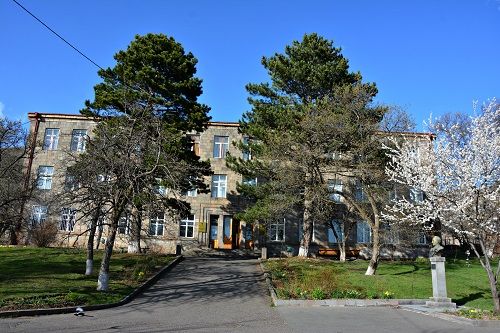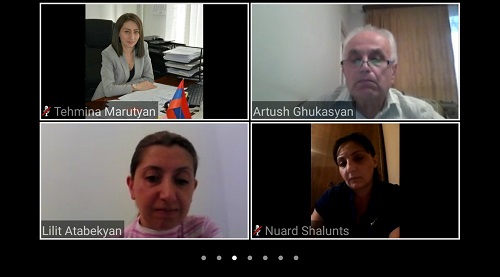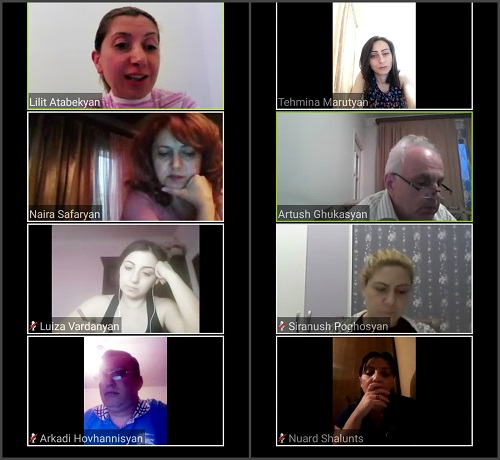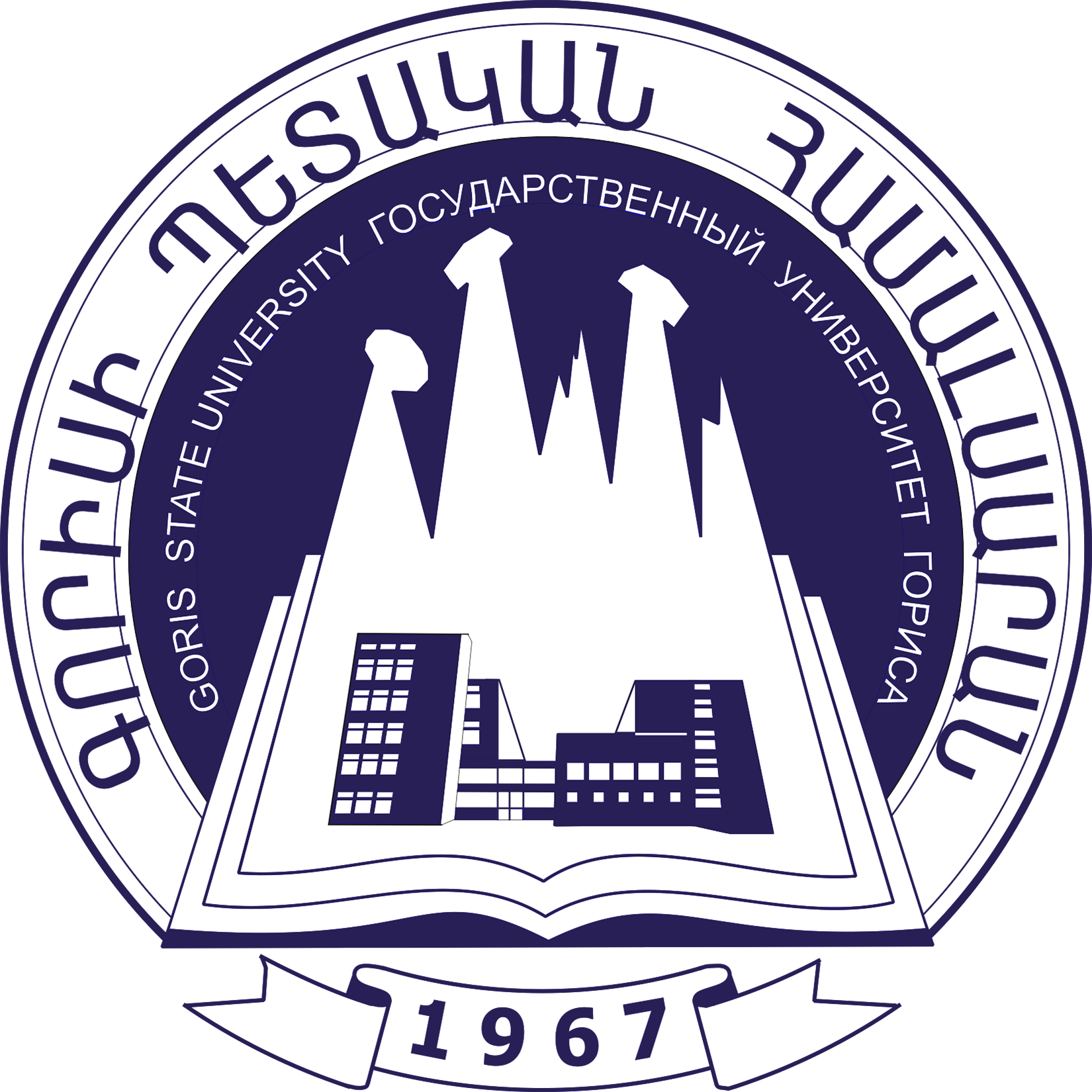THE SCIENTIFIC COUNCIL SUMMED UP THE ACADEMIC YEAR

On July 11 of this year, a session of the Academic Council was convened, the agenda of which mainly included the reports on the results of the final attestation of the 2019-2020 academic year, the results of the 2nd semester of distance learning courses.
From May 27 to June 15, the final attestation process for the 2019-2020 academic year was held at a distance in the GSU. In this academic year, GSU produced 316 graduates in 16 specialties under the bachelor and master’s degree.
Due to the epidemic situation, in addition to the existing procedures, the University approved transitional (temporary) provisions for the organization of the final attestation of the graduates of the 2019-2020 academic year, according to which the defense of the dissertations was organized online through “Zoom” video conference. The sequence of steps in this virtual area was developed taking into account the provisions of the all current transition points: the provisions of provisions. The commissions partially were working in a specially equipped auditorium, maintaining all conditions for the prevention of the epidemic, except for those members, including the President, who, due to limited mobility, assigned protection online for other valid reasons. During the online meetings with the people in charge of the process, all the possible problems were pointed out and the possible solutions were discussed. Both the commissions and the students received appropriate advice on the procedural provisions for the online organization of the final attestation, the members got acquainted with the works with the attached documents in advance by electronic format.
The final attestation assessment, according to standard metrics, was also performed online, on each platform created in Google Drive, on a common platform created for education, using Google Docs and Google Sheets online tools. Online protection is videotaped and stored (Zoom Cloud).
According to the information provided by the deans, the average grade of the attestation at the Faculty of Natural Sciences in the 2019-2020 academic year is 82.8 and 6 out of 44 graduates who have passed the attestation will receive a diploma of excellence. The average grade of the attestation at the Faculty of Engineering and Economics is 70.60, 7 out of 84 graduates who have passed the attestation will receive a diploma of excellence. The average grade of the attestation at the Faculty of Humanities and Social Sciences is 82.8, out of 177 graduates who have passed the attestation, 18 will receive diplomas of excellence. The chairmen of the final attestation commissions expressed rather high opinions on the qualitative results of the organization of remote defenses.
Rector A. Ghukasyan emphasized that in the current situation, the university has really done its best to make the risks as manageable as possible in the final attestation process, to ensure the final results. He thanked all the responsible people, the chairmen of the commissions for organizing the attestation process as smoothly as possible. The information of the deans was taken into account.
The information of the dean’s about the results of the examination period of the existing distance learning courses for the second half of the 2019-2020 academic year was heard as well.
By the Rector’s order No. 102 of May 18, 2020, the bachelor’s and master’s degree programs for the 2019-2020 academic year were prepared and organized remotely, from June 8 to June 26 of this year, using modern information and communication technologies, and the final evaluation references were completed on a common platform created by the Information Technology and Software Laboratory of the University through Google docs, Google sheets online tools included in the Google drive. The second ongoing inspections of the training schedule were canceled; the deadline was also provided for online discussions, consultations, and independent work. The assessment of students’ knowledge in the second half of the 2019-2020 academic year was carried out according to transitional (temporary) criteria. Decisions on deferred or interrupted practices were also made on the agenda.
By the relevant orders of the Rector, the distance learning courses of the second semester of the 2019-2020 academic year and exam period (from June 29 to July 3 of this year) were organized remotely, using modern information and communication technologies: transitional assessment criteria.
The remote processes were regularly monitored by the Vice-Rector for Educational Work, as well as by the Department of Quality Assurance of Education, the faculties provided up-to-date information, and the raised issues were discussed to improve the process and manage the risks.
The deans presented detailed information on the involvement of students in distance learning processes, academic achievement indicators by educational institutions, specialties and courses. The results are generally satisfactory, although there are problems with tuition recruitment, insufficient self-organization of stakeholders, disproportionate involvement, technical inconveniences of distance learning, and other issues. Anyway, the online learning processes in the faculties are generally well-organized to ensure outcoming educational results.
The information of the deans was taken into consideration. In the context of possible developments in the spread of the epidemic in the country, the issues related to the courses of the first semester of the next academic year were discussed as well. Rector A. Ghukasian instructed the responsible departments to organize training courses for lecturers, students, consultations to fully master the distance learning tools, to be as ready as possible for the next academic year.
At the session of the Scientific Council, the need to make certain changes in the curricula, the results of admission exams of 2020, summary work in departments and other current issues were discussed as well.






